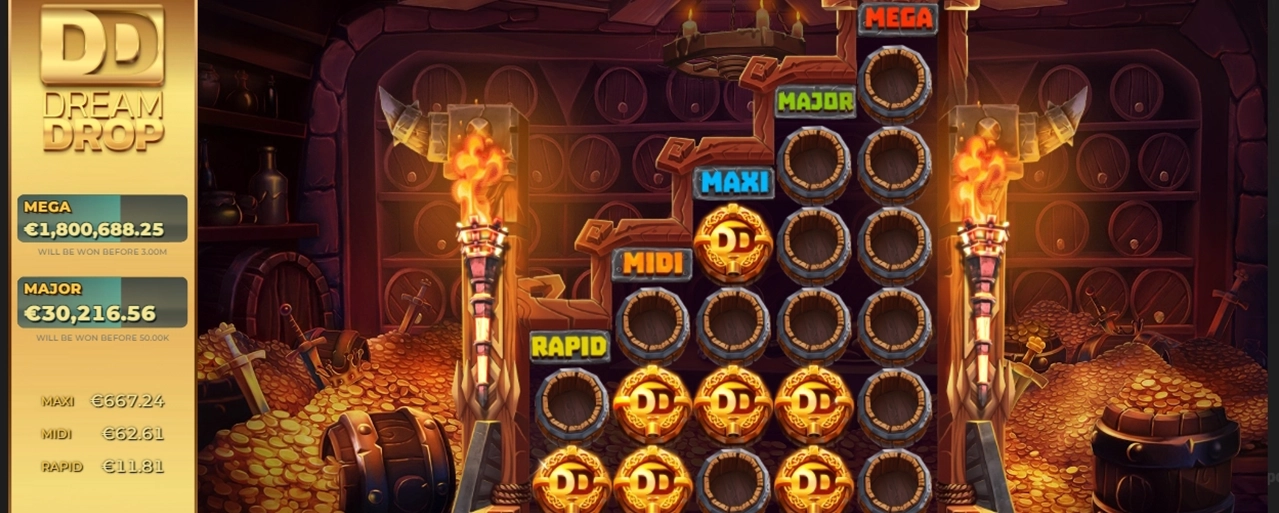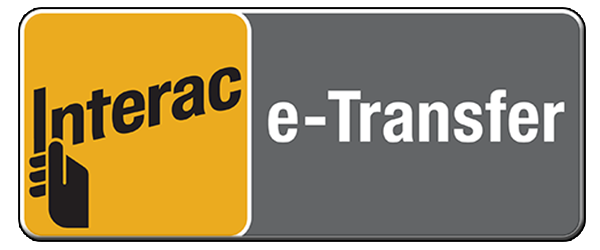Understanding Gambling Legislation in Canada

Canada has a long and very complex history when it comes to gambling. As long before John Cabot’s first journey to Canada in 1497, natives were believed to play gambling games with sticks as wagers. Fast forward to today, where it is both illegal and legal to gamble or own a gambling establishment in Canada.
How is this possible?
Are the police about to burst through your door and arrest you for playing slots last week?
The short answer to the second question is probably not. However, how this confusing situation is possible and the more informed answer on whether you will be arrested is a complex and intriguing journey, so let’s dive right into it and get a firm grasp on understanding gambling legislation in Canada.
The History Behind Gambling in Canada
As mentioned, the first evidence of gambling in Canada dates to the indigenous people, who invented the use of sticks for games and wagering. Playing cards were first introduced after John Cabot’s expedition to the Canadian coasts in 1497, which resulted in the creation of early variations of games like faro and the eventual emergence of poker and blackjack. Canada has always been a hotbed for gaming innovation, and over time, games like barbotte and dice have become fan favourites.
Even though it had always been legal, gambling only started to come under some official attention in the late 1800s in order to control and prohibit it. Laws advanced along with the residents’ desire for the right to play games. The majority of Canadians have been able to establish and visit land-based casinos as they see appropriate since the federal government chose to defer to individual provinces’ judgments on the matter in 1970. It is the players themselves who make most of the choices about internet gambling nowadays, with some regulatory monitoring and involvement from each of the provinces.
Canada’s First Gambling Laws
The Canadian Criminal Code was written in 1892 and contained laws governing gambling, which was tolerated but still legal under some circumstances. Pari-mutuel betting on horse races and other games of chance was legalized under that section of the Criminal Code in 1910, thanks to an amendment that made them permissible for charitable and religious reasons. However, because of the lax nature of such rules, gambling became more and more popular among Canadians as the 1900s went on.
What Laws Govern Gambling in Modern-Day Canada?
The Criminal Code was once more altered in 1970, this time to allow the provinces control over gaming. After that, Winnipeg saw the construction of the nation’s first casino in 1989, and additional cities, including Quebec, Ontario, Manitoba, Saskatchewan, and Nova Scotia, soon followed. In fact, racetracks have been around for much longer than that and have grown steadily in popularity over the years to become one of Canada’s favourite pastimes for placing wagers. Many states and provinces have legalized video lottery terminals to supplement tax income from traditional gambling venues like casinos and horse racetracks. In Canada, lotteries have been established, and gambling is widely acknowledged as a source of income for governments, nonprofit organizations, and institutions of religion.
Due to the widespread perception that illicit gambling is a victimless crime, the government does not see it as a serious danger to Canadians. Most aspects of gambling are acceptable, and it is up to the public to utilize it sensibly and for fun. Most provincial rules now in effect were solely passed to limit income and permit government-sponsored internet gaming to support the entire gambling sector.
Who Oversees The Gambling Operations In Canada?
The Canadian Gaming Commission keeps an eye on the whole Canadian gaming business, providing information and handling any major problems that may come up. In order to maintain an adequate understanding of the industry and maintain perspective, the organization engages with the public, the government, and the media. Individual provinces create and enforce their own laws governing casinos, internet gambling, sports betting, as well as other related activities.
Who Controls The Laws For Each Province?
Alberta
All gambling legislation in Canada, Alberta, is regulated by Alberta Gaming, Liquor, and Cannabis Commission which only allows religious and charitable organizations to register as gambling service providers in compliance with the Gaming, Liquor, and Cannabis Act. If you are looking for a regulatory website, Alberta only has PlayAlberta.ca.
British Columbia
Things are a little different in British Colombia as they allow for private businesses to register under the provision of the Gaming Policy and Enforcement Branch of the Ministry of Finance using the Gaming Control Act of 2002 as the regulatory law. Although British Columbia does have one thing in common with Alberta as they also only have one regulatory website, which is PlayNow.com
Manitoba
In Manitoba, there are two regulatory laws that companies must abide by after registering with the Manitoba Liquor and Lotteries Corporation, which also conduct background checks on the companies who have registered with them. These laws are the Manitoba Liquor and Lotteries Corporation Act and the Liquor, Gaming and Cannabis Control Act.
New Brunswick
Companies have some extra freedom in New Brunswick as they are allowed to develop, organize, undertake and conduct and manage lottery schemes on behalf of the Gaming Control Branch of the Department of Public Safety. The regulatory law in New Brunswick is the Gaming Control Act of 2008, and in what seems to be a theme within the different provinces, the one and only regulatory website is 2.gnb.ca.
Newfoundland and Labrador
This particular province does not have any land-based casinos. Therefore, the Consumer Affairs Division, Consumer and Commercial Affairs Branch of Service NL only allows for non-profitable gambling such as bingo, lotteries, and card games.
Nova Scotia
The Alcohol, Gaming, Fuel and Tobacco Division of Service in Nova Scotia not only regulates the gambling businesses in Nova Scotia, but they also deal with complaints and disputes that may occur within the industry. The Gaming Control Act of 1994-1995 is the regulatory law used within the Nova Scotian province.
Ontario
Ontario is the least restrictive province regarding gambling legislation in Canada. As a result, it is one of the most prominent proprietors of online gambling in Canada as of 2021. The Ontario Lottery and Gaming Corporation uses the Gaming Control Act of 1992 and the Ontario Lottery and Gaming Corporation 1999 as their regulatory basis, which has allowed for a wide variety of brick-and-mortar casinos to thrive in the province alongside the new iGaming industry finding rapid growth within the region.
The Prince Edward Island
The Prince Edward Island Lotteries Commission regulates both land-based and online casinos using the Lotteries Commission Act as the backbone of its regulations. This allows the Prince Edward Island Lotteries Commission to develop, organize, undertake, conduct and manage lottery schemes on behalf of the provincial government as long as they have the approval of the Lieutenant Governor of the Council.
Quebec
Quebec is not only the home of one of the world’s greatest Formula 1 race tracks, but it also boasts a rapidly growing gambling industry. It is primarily thanks to the Act Respecting Lotteries, Publicity, Contests, and Amusement Machines allowing the two official regulatory institutions, the Quebec Lottery Corporation and Regie des alcools, des courses et des jeux to empower online and brick-and-mortar casinos to operate at world-leading standards.
Saskatchewan
The Alcohol and Gaming Regulation Act of 1997 is the main regulatory act used, among other minor laws, by The Saskatchewan Liquor and Gaming Authority to regulate the provincial gambling industry.
Yukon, Nunavut, and Northwest Territories
In this combination of provinces, the offline gambling industry is rather underdeveloped and only has one casino amongst them. They do not have any regulatory websites either. However, Canada does have the Canadian Gaming Association, which has many helpful resources for players living in such provinces. More importantly, these provinces allow you to play online at your favourite online casinos.
Other Interesting Laws Around Gambling In Canada
Other interesting laws surrounding gambling legislation in Canada include that you do not have to pay any taxes on your winnings as long as you are not considered a professional gambler, such as a professional poker player.
Another important law is that online casinos have to collect the following information from an online player upon registration to the virtual casino, such as the player’s name, date of birth, residential address, username for future log-ins, and other player contact information.
It is also worth mentioning that the minimum legal age for gambling legislation in Canada differs from province to province.
What Does This All Mean For You?
The manner that Canada’s gambling regulations are applied means that the typical player need not be concerned. Almost all types of betting are now allowed in most provinces. Sports betting would be the one significant exception, which is prohibited in places and is only permitted as parlay wagers with regulated maximum bets. However, this element of gambling is continually being updated across the country.
Residents can use offshore websites even if there is no legal method for them to access more sophisticated sports betting. These offshore websites provide conventional casino games and online sportsbooks, whether they are located in the Caribbean or on First Nations territory in Canada. Despite not having a license within the nation’s borders, the operations are allowed for anyone to utilize.
Therefore, the country’s real gambling rules barely have an impact on you, at least not negatively. Canada is now a country where you can put bets on sporting events, horse races, or other games of chance. Lotteries, racetrack betting, casino games, and sportsbook betting are all offered in some capacity by each province. First Nations sites are available to take up the slack wherever any of the authorities fall short. So the long and short of it means that you have a lot of opportunities no matter what type of gambling interests you!
Conclusion
Canada is embracing the wants and needs of the people who want to have fun gambling, online or at land-based casinos, more and more. This means it is an exciting and fast-developing time to get involved with the gambling industry as a player or a business. Your options will only get bigger, so it’s best that you get on board with all the important stuff surrounding gambling legislation in Canada now, so you can then enjoy all the casino game experiences in full later on!
Timeline of Gambling in Canada
Gambling laws in Canada have taken many twists and turns throughout the years, so it’s not surprising if you are feeling a little overwhelmed after all that. The positive to take from this is that Canada has now changed for the better in terms of gambling. People like you can now access all forms of casino games, sports betting, and other online gambling entertainment. To round this off, we have put together a brief timeline of the pivotal years that helped to create the current Canadian gambling laws, showing how we ended up in the promising situation we now find ourselves in:
1892
Following the passage of the Canadian Criminal Code, gambling was deemed to be unlawful across the entire nation.
1900
A change is made to the legislation that had previously been in place regarding gaming. Bingo tournaments and raffles held in support of charitable causes were thought of as legal.
1925
Another change made it possible for fairs and exhibitions to seek for gaming licenses and host gambling events at their venues.
1969
The Criminal Code was once more altered so that the provincial and federal governments could operate lotteries and other gambling operations in order to collect revenue for their respective organizations.
1974
In order to help pay for the costs of hosting the Olympic Games in Montreal, Canada held its very first legitimate lottery.
1985
Another change was made to the Canadian Criminal Code, and this time it gave provincial governments and territorial governments jurisdiction over the legality and operation of computer-based gaming equipment like slot games, video lottery machines and other similar automated systems.
1989
Winnipeg was the location of the country’s first casino to open for business.
1993
Witnessed the opening of the city’s very first casino on land in Montreal.
1999
The amendment proposing to prohibit gambling in the Criminal Code was formally rejected. It was then up to the regional governments, all of which have now approved at least one type of gambling, if not many more.
Play Now!
Share Your Thoughts
Other Guides

17 January, 2023
Gambling Tax in Canada
Everything You Need to Know About Gambling Tax in Canada If you have been gambling in Canada for any amount of time, the question of whether or not you should be paying tax on your winnings has undoubtedly crossed your mind. Unfortunately, there is plenty of conflicting information out there when trying to research it […]
Read More
17 January, 2023
Understanding Gambling Legislation in Canada
Canada has a long and very complex history when it comes to gambling. As long before John Cabot’s first journey to Canada in 1497, natives were believed to play gambling games with sticks as wagers. Fast forward to today, where it is both illegal and legal to gamble or own a gambling establishment in Canada. […]
Read More
17 January, 2023
What Is the Legal Gambling Age in Canada?
As with most legal questions, the question of how old someone is legally required to be to gamble in Canada does not have a straight black-and-white answer. Instead, it is dependent on a few factors, such as where in Canada you live or where in Canada you are planning to take part in some gambling […]
Read More




















































